Disability Pride Month is celebrated in July because the Americans with Disabilities Act (ADA) was signed into law on July 26, 1990. The civil rights law prohibits discrimination against individuals with disabilities in all areas of public life, such as jobs, schools, and transportation. This month, we celebrate all people for who they are by highlighting books by or about people with disabilities in many varieties!
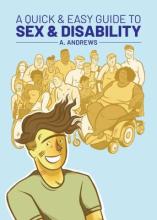
All different kinds of bods want to connect with other bods, but lots of them get left out of the conversation when it comes to S-E-X. As explained by disabled cartoonist A. Andrews, this easy-to-read guide covers the basics of disability sexuality, common myths about disabled bodies, communication tips, and practical suggestions for having the best sexual experience possible. Whether you yourself are disabled, you love someone who is, or you just want to know more, consider this your handy starter kit to understanding disability sexuality, and your path to achieving accessible (and fulfilling) sex.
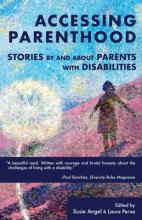
In nine poignant essays, from nine varied perspectives, Accessing Parenthood confronts how disability changes the act of parenting. The essayists write of pushing their bodies to keep up with their children, of coming to understand their parents' disabilities, or of grappling with the decision to have children at all. These essays examine the universally heart-wrenching challenges of watching your children grow up, worried that you'll ruin them, as well as barriers unique to the experience of parenting with a disability.
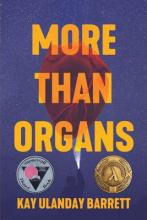
A love letter to brown, queer, and trans futures, Kay Ulanday Barrett's More Than Organs questions "whatever wholeness means" for bodies always in transit, for the safeties and dangers they silo. These poems remix people of color as earthbenders, replay "the choreography of loss" after the 2015 Pulse shooting, and till joy from the cosmic sweetness of a family's culinary history. Barrett works "to build / a shelter // of / everyone / they] meet," from aunties to the legendary Princess Urduja to their favorite air sign. More Than Organs tattoos grief across the knuckles of its left hand and love across the knuckles of its right, leaving the reader physically changed by the intensity of experience, longing, strength, desire, and the need, above all else, to survive.
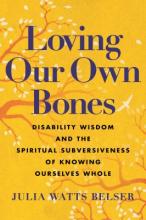
A transformative spiritual companion and deep dive into disability politics that reimagines disability in the Bible and contemporary culture. The essential read on disability, spirituality, and social justice that won the 2025 Grawemeyer Award in Religion, the 2024 National Jewish Book Award, and more. "What's wrong with you?" Scholar, activist, and rabbi Julia Watts Belser is all too familiar with this question. What's wrong isn't her wheelchair, though--it's exclusion, objectification, pity, and disdain. Through fresh and unexpected readings of the Bible, Loving Our Own Bones instead paints a luminous portrait of what it means to be disabled and one of God's beloved.
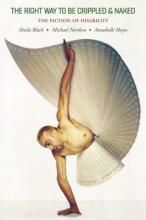
Welcome to the worlds of the disabled. The physically disabled. The mentally disabled. The emotionally disabled. What does that word "disabled" mean anyway? Is there a right way to be crippled? Editors Sheila Black and Michael Northen join newcomer Annabelle Hayse to present short stories by Jillian Weise, Dagoberto Gilb, Anne Finger, Stephen Kuusisto, Thom Jones, Lisa Gill, Floyd Skloot and others. These authors--all who experience the "disability" they write about--crack open the cage of our culture's stereotypes. We look inside, and, through these people we thought broken, we uncover new ways of seeing and knowing.
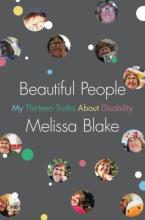
In the summer of 2019, journalist Melissa Blake penned an op-ed for CNN Opinion. A conservative pundit caught wind of it and shared online. What happened next is equal parts a searing view into society, how we collectively view and treat disabled people, and the making of an advocate. In this manifesto, Blake shares her truths about disability, writing about the language we use to describe disabled people, ableism and microaggressions, what it's like to live in a society that not only isn't designed for you but actively operates to render you invisible, her struggles with self‑image and self‑acceptance, the absence of disabled people in popular culture, and why disabled people aren't tragic heroes.
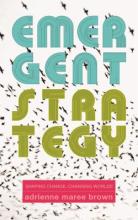
Inspired by Octavia Butler's explorations of our human relationship to change, Emergent Strategy is radical self-help, society-help, and planet-help designed to shape the futures we want to live. Change is constant. The world is in a continual state of flux. It is a stream of ever-mutating, emergent patterns. Rather than steel ourselves against such change, this book invites us to feel, map, assess, and learn from the swirling patterns around us in order to better understand and influence them as they happen. This is a resolutely materialist "spirituality" based equally on science and science fiction, a visionary incantation to transform that which ultimately transforms us. It is a guidebook for getting in right relationship with change, using our own nature and that of creatures beyond human as our teachers.
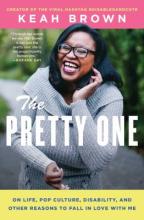
From the disability rights advocate and creator of the #DisabledAndCute viral campaign, a thoughtful, inspiring, and charming collection of essays exploring what it means to be black and disabled in a mostly able-bodied white America. Brown gives a contemporary and relatable voice to the disabled -- so often portrayed as mute, weak, or isolated. With clear, fresh, and light-hearted prose, these essays explore everything from her relationship with her able-bodied identical twin (called 'the pretty one' by friends) to navigating romance; her deep affinity for all things pop culture--and her disappointment with the media's distorted view of disability; and her viral declaration of self-love.

In the Field Between Us is a friendship in poems, an epistolary project by Molly McCully Brown and Susannah Nevison that ponders disability and the possibility of belonging in the aftermath of lifelong medical intervention. This exquisite exchange of poem-letters between two disabled writers traces their struggle to find purchase in inhospitable landscapes―topographical, social, emotional, semantic. Out of their tracing of innumerable scars, these poems emit a perseverance, a spirit of communion, and a hopeful resolve that rise out of the poets’ profound connection to one another.
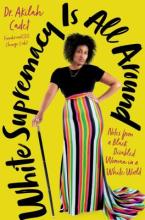
In a series of personal stories told with candor and wit, Dr. Cadet explores the long-term work required to combat structural oppression from her unique vantage point as a Black disabled woman. She tackles everything: from the 2020 "summer of allyship" and depression caused by workplace discrimination to navigating disability and building a consulting business, all with a little inspo from Beyoncé. A powerful call for true accompliceship for non-Black people, and a way for Black people to see and celebrate themselves. Dr. Akilah Cadet speaks to all these needs, drawing from her life experiences and work helping leading brands build inclusive and equitable cultures to offer an informed perspective that prioritizes intersectionality.

Jen Campbell's first collection The Girl Aquarium explores the realm of rotten fairy tales, the possession of body and the definition of beauty. Weaving between whispered science and circus, she turns a cracked mirror on society and asks who gets to control the twisted tales hiding in the wings.
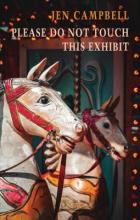
Please Do Not Touch This Exhibit explores disability, storytelling, and the process of mythologising trauma. Jen Campbell writes of Victorian circus and folklore, deep seas and dark forests, discussing her own relationship with hospitals - both as a disabled person, and as an adult reflecting on childhood while going through IVF.
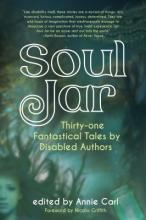
Too often, science fiction and fantasy stories erase--or cure--characters with disabilities. Soul Jar, edited by author and bookstore owner Annie Carl, features thirty-one stories by disabled authors, imagining such wonders as a shapeshifter on a first date, skin that sprouts orchid buds, and a cereal-box demon. An insulin pump diverts an undead mob. An autistic teen sets out to discover the local cranberry bog's sinister secret. A pizza delivery on Mars goes wrong. This thrillingly peculiar collection sparkles with humor, heart, and insight, all within the context of disability representation.
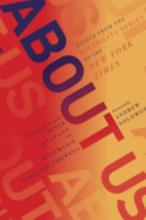
Speaking not only to those with disabilities, but also to their families, coworkers and support networks, the authors in About Us offer intimate stories of how they navigate a world not built for them. This landmark collection gathers the most powerful essays from the New York Times series that speak to the fullness of human experience-stories about first romance, childhood shame and isolation, segregation, professional ambition, child-bearing and parenting, aging and beyond. Reflecting on the fraught conversations around disability-from the friend who says "I don't think of you as disabled," to the father who scolds his child with attention differences, "Stop it stop it stop it what is wrong with you?"-the stories here reveal the range of responses, and the variety of consequences, to being labeled as "disabled" by the broader public.
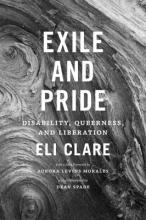
First published in 1999, the groundbreaking Exile and Pride is essential to the history and future of disability politics. Eli Clare's writing about his experiences as a white disabled genderqueer activist/writer established him as one of the leading writers on the intersections of queerness and disability. His essays weave together memoir, history, and political thinking to explore meanings and experiences of home: home as place, community, bodies, identity, and activism. At the root of Clare's exploration of environmental destruction and capitalism, sexuality and institutional violence, gender and the body politic, is a call for social justice movements that are truly accessible to everyone, where our whole selves in all their complexity can be loved and accepted.
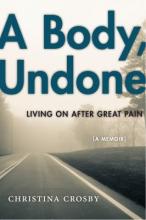
In the early evening in 2003, Christina Crosby was intent on reaching her goal of 1,000 miles for the biking season when a branch unseated her. In that instant, she was paralyzed. In this memoir, she writes about a body shot through with neurological pain, disoriented in time and space, incapacitated by paralysis and deadened sensation. She recalls her 1950s tomboy ways in rural Pennsylvania and records growing into the 1970s through radical feminism and the affirmations of gay liberation. Deeply unsentimental, Crosby communicates in unflinching prose the experience of "diving into the wreck" of her body to acknowledge grief, and loss, but also to recognize the beauty, fragility, and dependencies of all human bodies.
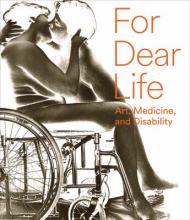
For Dear Life: Art, Medicine, and Disability is the first exhibition and publication to survey themes of illness and impairment in American art from the 1960s up to the COVID-19 era. Narrating the history of recent art through the lens of disability--a term used inclusively--For Dear Life recognizes the vulnerable body to be a crucial, of overlooked, throughline in art of the United States amid the upheavals and transformations of the past six decades.

Judith is barely out of her teens when a tumor begins pressing on her brain, ushering in a new world of seizures, memory gaps, and loss of self. Suddenly, the sentence of her normal life has been interrupted by the opening of a parenthesis that may never close. Based on the real experiences of cartoonist Élodie Durand, Parenthesis is a gripping testament of struggle, fragility, acceptance, and transformation which was deservedly awarded the Revelation Prize of the Angoulême International Comics Festival.
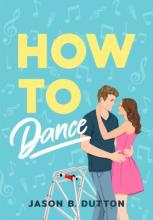
Nick works hard as the star of karaoke night at his local bar, hoping his singing talent, quick wit, and winning smile will distract from his cerebral palsy. Watching a professional dancer light up the dance floor one night, he realizes that singing will never give him a fraction of the joy he sees in this woman's eyes. When Hayley notices Nick's reaction to her dancing, she urges him to acknowledge his passion and try a few moves himself, only to be mortified when she realizes Nick can only walk with the aid of a metal walker. As Nick and Hayley fumble through misunderstanding into friendship, they find their rhythm together and she shows him that "'dancing" is about so much more than moving your feet.

Arlo is young, handsome, and eager to meet the right girl. He also happens to be DeafBlind, a Jehovah's Witness, and under the strict guardianship of his controlling uncle. His chances of finding someone to love seem slim to none. And yet, it happened once before: many years ago, at a boarding school for the Deaf, Arlo met the love of his life--a mysterious girl with onyx eyes and beautifully expressive hands which told him the most amazing stories. But tragedy struck, and their love was lost forever--or so Arlo thought.
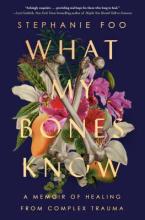
A searing memoir of reckoning and healing investigating the little-understood science behind Complex PTSD and how it has shaped her life. By age thirty, Stephanie Foo was successful on paper. But behind her office door she was having panic attacks and sobbing at her desk. She was diagnosed with Complex PTSD - a condition that occurs when trauma happens continuously, over the course of years. She thought she'd overcome her trauma, but her diagnosis illuminated the ways in which her past continued to threaten her health, her relationships, and her career. Stephanie interviews scientists and psychologists, ultimately discovering that you don't move on from trauma-but you can learn to move with it with grace and joy.
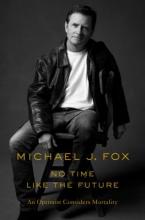
The actor shares personal stories and observations about illness and health, aging, the strength of family and friends, and how perceptions about time affect the consideration of mortality. His two previous memoirs exhibited his iconic optimism but his new book reassesses this outlook, as events in the past decade presented additional challenges. Running through the narrative is the drama of the medical madness Fox recently experienced, that included his daily negotiations with the Parkinson’s disease he’s had since 1991, and a spinal cord issue that necessitated immediate surgery. His challenge to learn how to walk again, only to suffer a devastating fall, nearly caused him to ditch his trademark optimism and “get out of the lemonade business altogether.”

A queer, political, and feminist collection guided by self-reflection. The poems range from close examination of the deeply personal to the vastness of the world, exploring the expansiveness of the human experience from love to illness, from space to climate change, and so much more in between. One of the most celebrated poets and performers of the last two decades, Andrea Gibson's trademark honesty and vulnerability are on full display in You Better Be Lightning, welcoming and inviting readers to be just as they are.
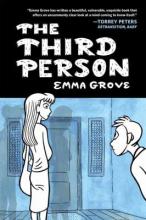
In the winter of 2004, Emma sits in Toby's office. She wants to share this wonderful new book she's reading, but Toby, her therapist, is concerned with other things. Emma has shown up at the therapy sessions as an outgoing, confident young woman named Katina, and a depressed, submissive workaholic named Ed. She has little or no memory of her actions when presenting as these other two people. As the story unfolds, we discover clues to Emma's troubled past, and how and why these other two people may have come into existence. Toby begins to wonder if Emma is merely acting out to get attention, or if she actually has Dissociative Identity Disorder. Is she just a troubled woman in need of help? And is "the third person" in her brain protecting her or derailing her chances of ever finding peace?
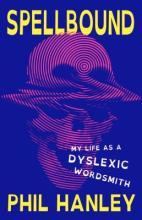
The A-list comedian tells the story of his unlikely path to success while struggling with severe dyslexia. When Phil entered first grade, he realized something that would forever set him apart from his peers: he couldn't read. His teachers were ill-equipped to assist him and wrote him off as a hopeless case. Finally, he was diagnosed with dyslexia, a learning disability that would shape the rest of his life. Unable to pursue college or a traditional job, Phil was thrust into a life to be defined by unconventional twists. Spellbound is a story of humor and also of struggle and heartbreak, of constantly living in a world that sees things differently than you, and of triumph over adversity. Phil shows us that dyslexia can be a huge challenge, but having it does not spell certain condemnation (nor can he).
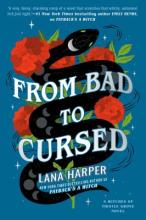
Opposites attract in this wickedly charming rom-com. Wild child Isidora Avramov is a thrill chaser, adept demon summoner, and-despite the whole sexy-evil-sorceress vibe-also a cuddly animal lover. When someone starts sabotaging this year's Beltane festival with dark magic, a member of the rival Thorn family gets badly hurt-throwing immediate suspicion on the Avramovs. To clear the family name, Issa pairs with her archnemesis Rowan Thorn to investigate. As the unlikely duo follow a perplexing trail of clues to a stunning conclusion, Issa and Rowan discover how little they really know each other. . . and stumble upon a maddening attraction that becomes harder to ignore by the day.
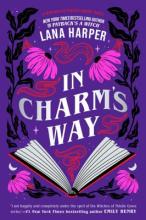
A witch struggling to regain what she has lost casts a dangerous spell and finds much more than she expected. Seven months after having been hit by a power surge, Delilah is still picking up the pieces. In an effort to reclaim her former independence, she casts a forbidden blood spell with healing capacities that unexpectedly turns Delilah into an irresistible beacon for malevolent supernatural creatures. One night a mysterious stranger appears in the nick of time to save Delilah's soul. Gorgeous, sultry, and as dangerous as the knives she carries, Catriona Quinn is a hunter of monsters-and half-human half-creature herself, the kind of sly and morally gray fae Delilah would normally find horrifying. As the two delve deeper into the power that underlies Thistle Grove, they uncover not only the town's hidden history but also a risky attraction.

Abigail Heringer made her television debut as an instant fan-favorite on ABC's The Bachelor. Stepping out of the luxurious limo, she confidently approached her bachelor and let him know that she'd be staring at his lips all night for two reasons: (1) she was born deaf and (2) he has some nice-looking lips. But Abigail's life didn't start out with this level of self-assured energy. As a deaf child and natural introvert, Abigail was terrified of the spotlight-always afraid of how people would react to her disability and how her presence would inconvenience others. But with the support of her family (especially her deaf older sister), she learned that the world would walk all over her if she let. Only through becoming her fiercest advocate and loudest champion could she ever learn to find her own voice.
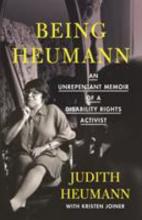
One of the most influential disability rights activists in US history tells her personal story of fighting for the right to receive an education, have a job, and just be human. A story of fighting to belong in a world that wasn't built for all of us and of one woman's activism--from the streets of Brooklyn and San Francisco to inside the halls of Washington--Being Heumann recounts Judy Heumann's lifelong battle to achieve respect, acceptance, and inclusion in society.
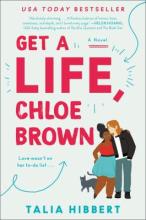
A witty, hilarious romantic comedy about a woman who’s tired of being “boring” and recruits her mysterious, sexy neighbor to help her experience new things. Chloe Brown is a chronically ill computer geek with a goal, a plan, and a list. She's come up with seven directives to help her "Get a Life", and she's already completed the first: finally moving out of her family's mansion. But it's not easy being bad, even when you’ve written step-by-step guidelines on how to do it correctly. What Chloe needs is a teacher, and she knows just the man to help her complete her list. Red Morgan is a handyman with tattoos, a motorcycle, and sex appeal, who paints at night but hides his work. When she enlists Red to help her rebel, she discovers what really lies beneath his rough exterior.

By turns funny, harrowing, and inspirational, the story of a man struggling to overcome a rare syndrome that causes terrifying hallucinations, who eventually, despite the odds, finds love. Chet Tremaine is living his best life as a successful lawyer with a loyal best friend, the arts and culture of New York City at his doorstep, and a peaceful retreat in Connecticut. Even when a freak tennis accident leaves him blind in one eye, Chet is confident he'll be able to bounce back. But then he starts hallucinating: unknown children playing in his living room, pine needles seasoning his salad, wire grids barring access to his bathroom. His doctor shock him with a new, incurable diagnosis. Chet decides to make a final Hail Mary attempt to find a cure, embarking on a spiritual quest that will take him all the way to the mountains of Nepal.

Born with a congenital muscle disorder, Shaka spends her days in her room in a care home outside Tokyo, relying on an electric wheelchair to get around and a ventilator to breathe. But if Shaka's physical life is limited, her quick, mischievous mind has no boundaries: she takes e-learning courses on her iPad, publishes explicit fantasies on websites, and anonymously troll-tweets to see if anyone is paying attention ('If I were to live again, I'd want to be a high-class prostitute'). One day, she tweets into the void an offer of an enormous sum of money for a sperm donor. To her surprise, her new nurse accepts the dare, unleashing a series of events that will forever change Shaka's sense of herself as a woman in the world.
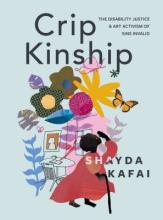
Crip Kinship explores the art activism of Sins Invalid, a San Francisco Bay Area-based performance project, and its radical imaginings of what disabled, queer, trans, and gender-nonconforming bodyminds of color can do: how they can rewrite oppression, and how they can gift us with transformational lessons for our collective survival. Grounded in the disability justice framework, Crip Kinship investigates the revolutionary survival teachings that disabled, queer of colour community offers to all our bodyminds. From their focus on crip beauty and sexuality to manifesting digital kinship networks and crip-centric liberated zones, Sins Invalid empowers and moves us toward generating our collective liberation from our bodyminds outward.

Every Cripple a Superhero is at once a memoir of life with a progressive disorder, and a profound exploration of the challenges of loving, being loved, and living a public life - navigating restaurants, airplanes, museums and artists' retreats - in a world not designed for you. Threaded throughout are Keller's own photographs of the unexpected beauty found in puddle-filled 'curb cuts', the pavement ramps that, left to disintegrate, form part of the urban obstacle course. Those puddles become portals into a different, truer city; and, as they do, so this book - told with humor and immense grace - begins to uncover a truer world: one where the 'normal' is not normal, where disability is far more widespread than we might think, and where there always exist, just alongside our own, the lives of everyday superheroes.

Packed with simple strategies and practical tools, How to Eat Well for Adults with ADHD helps ADHDers overcome common struggles in the kitchen and transform their relationship with food. Written by registered dietitian and ADHDer Rebecca King, (@adhd.nutritionist), this book is not a diet book, but rather a book of solutions to common problems ADHDers experience with cooking and nutrition. Rooted in King’s weight-neutral, intuitive eating–based philosophy, this book breaks down how ADHD affects your relationship with food and gives tools to develop a better approach. Practical, comprehensive, backed by science, but written with the understanding of someone who’s actually been there, King address challenges with food without shame or pressure.
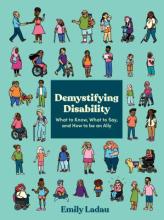
An approachable guide to being a thoughtful, informed ally to disabled people, with actionable steps for what to say and do (and what not to do) and how you can help make the world a more inclusive place. People with disabilities are the world’s largest minority, an estimated 15 percent of the global population. But many of us—disabled and nondisabled alike—don’t know how to act, what to say, or how to be an ally to the disability community. What are the appropriate ways to think, talk, and ask about disability? Demystifying Disability is a friendly handbook on the important disability issues you need to know about.
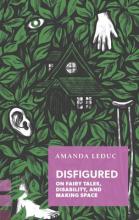
In fairy tales, happy endings are the norm - as long as you're beautiful and walk on two legs. And since fairy tales are the foundational myths of our culture, how can a girl with a disability ever think she'll have a happy ending? Through the book, Leduc ruminates on the connections we make between fairy tale archetypes - the beautiful princess, the glass slipper, the maiden with long hair lost in the tower - and tries to make sense of them through a twenty-first-century disablist lens. Leduc connects the fight for disability justice to the growth of modern, magical stories, and argues for increased awareness and acceptance of that which is other - helping us to see and celebrate the magic inherent in different bodies.
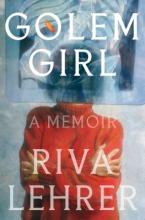
In 1958, Riva is one of the first children born with spina bifida to survive. Her parents and doctors are determined to "fix" her, sending the message over and over again that she is broken. Everything changes when, as an adult, Riva is invited to join a group of artists who are building Disability Culture. Riva paint their portraits--an intimate process that will transform the way she sees herself, others, and the world. With each portrait, and each person's story, the myths she's been told her whole life--about her body, her sexuality, and the value of normalcy--begin to crumble. With the author's magnificent portraits featured throughout, this memoir invites us to stretch ourselves toward a world where bodies flow between all possible forms of what it is to be human.
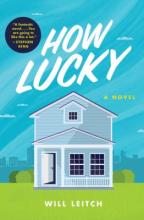
Daniel leads a rich life in the university town of Athens, Georgia. He's got a couple close friends, a steady paycheck working for a regional airline, and of course, for a few glorious days each Fall, college football tailgates. He considers himself to be a mostly lucky guy - despite the fact that he's suffered from a debilitating disease since he was a small child, one that has left him unable to speak or to move without a wheelchair. Largely confined to his home, Daniel spends the hours he's not online communicating with irate air travelers observing his neighborhood from his front porch. One young woman passes by so frequently that spotting her out the window has almost become part of his daily routine. Until the day he's almost sure he sees her being kidnapped...
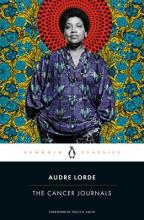
First published over forty years ago, The Cancer Journals is a startling, powerful account of Audre Lorde's experience with breast cancer and mastectomy. Long before narratives explored the silences around illness and women's pain, Lorde questioned the rules of conformity for women's body images and supported the need to confront physical loss not hidden by prosthesis. Living as a "black, lesbian, mother, warrior, poet," Lorde heals and re-envisions herself on her own terms and offers her voice, grief, resistance, and courage to those dealing with their own diagnosis. Poetic and profoundly feminist, Lorde's testament gives visibility and strength to women with cancer to define themselves, and to transform their silence into language and action.

Mairs explores, in her inimitable voice, disability and the way it shapes a life. The result is a brave and beautiful book that will open new worlds for readers. It begins with a disavowal ("I cannot begin to write this book ... I don't want to think about my crippled life") and ends with a declaration of hope ("I choose joy"). She begins with the personal history of her disease, the intimate realities of the body, the moral economy of care and caregiving, and life with her husband and children. The second half of the book covers topics that look outward: women with disabilities, obstacles physical and social, the ethics of selective abortion and euthanasia, the joys and troubles of travel, and more.
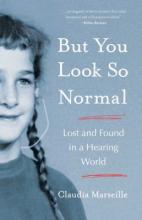
When her parents had Claudia's hearing tested at age four and learned she had a severe hearing loss, they chose to mainstream her, hoping this would offer her the most "normal" childhood possible. Claudia worked hard to learn to hear, lipread, and speak even as she tried to hide her disability in order to fit in but was often misunderstood, lonely, and isolated. This memoir explores Claudia's relationships with her German refugee parents -- a disturbed, psychoanalyst father obsessed over various harebrained projects and moneymaking schemes and a Jewish mother who had survived the Holocaust in Munich -- and with her own identity. Claudia shares how she emerged from loneliness and social isolation, explored her Jewish identity, struggled to find a career compatible with hearing loss, and eventually opened herself to a life of creativity and love.

After a car accident, Jarred discovers he'll never walk again. Confined to a "giant roller-skate", he finds himself with neither money nor job. Worse still, he's forced to live back home with the father he hasn't spoken to in 10 years. Add in a shoplifting habit, an addiction to painkillers and the fact that total strangers now treat him like he's an idiot, and it's a recipe for self-destruction. How can he stop himself careering out of control? As he tries to piece his life together again, he looks back over his past - the tragedy that blasted his family apart, why he ran away, the damage he's caused himself and others - and starts to wonder whether, maybe, things don't always have to stay broken after all.
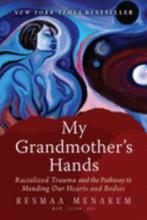
The body is where our instincts reside and where we fight, flee, or freeze, and it endures the trauma inflicted by the ills that plague society. In this groundbreaking work, therapist Resmaa Menakem examines the damage caused by racism in America from the perspective of body-centered psychology. Our collective agony doesn't just affect African Americans. White Americans suffer their own secondary trauma as well. My Grandmother's Hands is a call to action for all of us to recognize that racism is not about the head, but about the body, and introduces an alternative view of what we can do to grow beyond our entrenched racialized divide.

When Joshua Miele was four years old, he answered his front door, and a mentally disturbed neighbor poured a cup of acid over his head, horrifically burning him and blinding him for life. In "Connecting Dots" -a reference to braille and a metaphor for Miele's explorations and discoveries-readers are treated to a memoir that is as illuminating as it is entertaining, and ultimately as triumphant as they come: in 2022, Miele fulfilled a nearly lifelong dream when he won a MacArthur genius Grant. In telling his own story-spanning from the 1970s to today, he speaks to how the world has changed (and how it hasn't) when it comes to blindness, and to disability and accessibility more broadly.
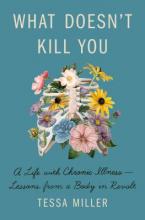
A candid account of a young journalist's awakening to a life of chronic illness, weaving together her personal story with reporting to shed light on how Americans live with long-term diagnoses today. Tessa was an ambitious twentysomething writer in New York when, on a random fall day, her stomach began to seize up. Once she was finally correctly diagnosed with Crohn’s disease, Miller faced another battle: accepting that she will never get better. Today, an astonishing three in five adults in the United States suffer from a chronic disease—a percentage expected to rise post-Covid. Miller segues seamlessly from her dramatic personal experiences into a frank look at the cultural realities (medical, occupational, social) inherent in receiving a lifetime diagnosis, offering wisdom, solidarity, and an ultimately surprising promise of joy.
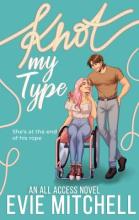
When you say you're a sexologist, people imagine Marilyn Monroe. They don't expect a woman who uses a wheelchair. Podcast host Frankie breaks barriers, crushes stigmas, and creates sexual connections that are fulfilling for her fans until she's stumped by a question advice about accessible rope play. She meet rigger Jay Wood, who ties her stomach in knots. Jay's heart feels frayed as he considers taking the ultimate leap of faith-tying himself to Frankie permanently.
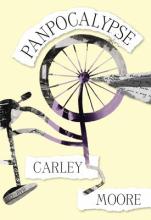
During the coronavirus pandemic, a queer disabled woman bikes through a locked-down NYC for the ex-girlfriend who broke her heart. But then she hears mysterious news of the underground bar Le Monocle, fashioned after the 1930s Parisian lesbian club of the same name. Can she find it? Will she ever be allowed to love again? First written and published online in weekly installments, Carley Moore’s Panpocalypse is the time-bending, genre-busting queer novel of a pandemic-afflicted world.
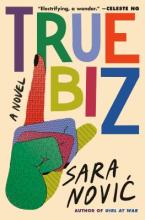
The students at the River Valley School for the Deaf just want to hook up, pass their history final, and have doctors, politicians, and their parents stop telling them what to do with their bodies. This revelatory novel plunges readers into the halls of a residential school for the deaf, where they'll meet Charlie, a rebellious transfer student who's never met another deaf person before; Austin, the school's golden boy, whose world is rocked when his baby sister is born hearing; and February, the headmistress, who is fighting to keep her school open and her marriage intact, but might not be able to do both at the same time. As a series of crises both personal and political threaten to unravel each of them, Charlie, Austin, and February find their lives inextricable from one another-and changed forever.

A silent epidemic of chronic illnesses afflicts tens of millions of Americans: these are diseases that are poorly understood, frequently marginalized, and can go undiagnosed and unrecognized altogether. O'Rourke investigates this elusive category of 'invisible' illness that encompasses autoimmune diseases, post-treatment Lyme disease syndrome, and long-COVID. Drawing on her own medical experiences as well as a decade of interviews with doctors, patients, researchers, and public health experts, O’Rourke traces the history of Western definitions of illness, and reveals how inherited ideas of cause, diagnosis, and treatment have led us to ignore a host of hard-to-understand medical conditions, ones that resist easy description or simple cures.
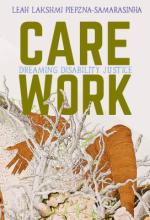
In their new collection of essays, award-winning writer and activist Leah Lakshmi Piepzna-Samarasinha explores the politics and realities of disability justice, a movement that centers the lives and leadership of sick and disabled queer, trans, Black, and brown people. They write passionately and personally about creating spaces by and for sick and disabled queer people of color, and creative "collective access" - access not as a chore but as a collective responsibility and pleasure - in communities and political movements. Bringing their survival skills and knowledge from years of cultural and activist work, Piepzna-Samarasinha explores everything from the economics of queer femme emotional labor, to suicide in queer and trans communities, to the nitty-gritty of touring as a sick and disabled queer artist of color.
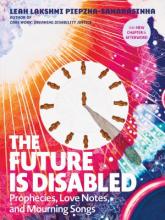
An essay collection that expands on the bestselling book Care Work, centering and uplifting disability justice and care in the pandemic era. Leah Laksmi Piepzna-Samarasinha asks some provocative questions: What if, in the near future, the majority of people will be disabled--and what if that's not a bad thing? And what if disability justice and disabled wisdom are crucial to creating a future in which it's possible to survive fascism, climate change, and pandemics and to bring about liberation? They write crip interdependence, care and mutual aid in real life, disabled community building, and disabled art practice as survival and joy. Written over the course of two years of disabled isolation during the pandemic, this is a book of love letters to other disabled QTBIPOC (and those concerned about disability justice, the care crisis, and surviving the apocalypse).
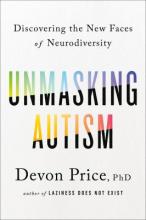
For every visibly Autistic person you meet, there are countless “masked” Autistic people who pass as neurotypical. Masking is a common coping mechanism in which Autistic people hide their identifiably Autistic traits in order to fit in with societal norms, adopting a superficial personality at the expense of their mental health. Dr. Devon Price shares his personal experience with masking and blends history, social science research, prescriptions, and personal profiles to tell a story of neurodivergence that has thus far been dominated by those on the outside looking in. Price lays the groundwork for unmasking and offers exercises that encourage self-expression.
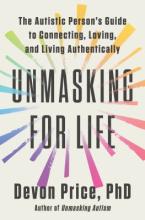
Most masked Autistics have spent a lifetime being told how to perform neurotypically: how to behave, how to carry themselves, what to feel, and how to live. No matter where you are in the unmasking process, there is still work to be done. Because Autistic people often fear change, struggle to process unfamiliar situations, and have trauma histories that have conditioned them to avoid conflict, they don't always know how to transform their inner revelations into outer realities. They need more than internal healing--they need practical tools to translate acceptance into assertiveness and interpersonal effectiveness. Enter Unmasking for Life, which provides the resources to help you advocate for your needs and invent new ways of living, loving, and being that work with your disability rather than against it.

When Jules Sherred discovered the Instant Pot multicooker, he was thrilled. And incensed. How had no one told him what a gamechanger this could be, for any home cook but in particular for those with disabilities and chronic illness? With 50 recipes that make use of three key tools--the electric pressure cooker, air fryer, and bread machine--Jules has set out to make the kitchen accessible and enjoyable. The book includes pantry prep, meal planning, shopping guides, kitchen organization plans, and tips for cooking safely when disabled, all taking into account varying physical abilities and energy levels. Organized from least to greatest effort (or from 1 to "all your spoons," for spoonies), beginning with spice blends and bases, Jules presents thorough, tested, inclusive recipes.
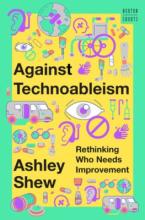
When bioethicist and professor Ashley Shew became a self-described “hard-of-hearing chemobrained amputee with Crohn’s disease and tinnitus,” there was no returning to “normal.” To forge a more equitable world, Shew argues that we must eliminate “technoableism”—the harmful belief that technology is a “solution” for disability; that the disabled simply await being “fixed” by technological wizardry; that making society more accessible and equitable is somehow a lesser priority. This badly needed introduction to disability expertise considers mobility devices, medical infrastructure, neurodivergence, and the crucial relationship between disability and race.
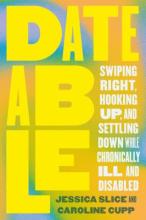
Disabled people date, have casual sex, marry, and parent. Yet, such romantic lives of are conspicuously absent from the media and cultural conversation. Disabled author and essayist Jessica Slice and disabled bioethicist and progressive faith leader Caroline Cupp team up to address the serious gap in the dating space. A dating guide made especially for disabled and chronically ill people, that calls in able bodied readers, Dateable is the first book on disabled dating and relationships. Slice and Cupp take on everything from rom-com representation to dating apps to sex and breakups with a strong narrative underpinning and practical advice. The book is as much a practical tool as it is an empowering guide.
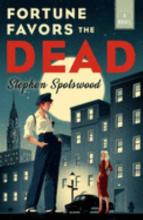
New York, 1942: Willowjean "Will" Parker is a scrappy circus runaway whose knife-throwing skills have just saved the life of private investigator, Lillian Pentecost. Lillian's multiple sclerosis means she can't keep up with her old case load alone, so she wants to hire Will to be her right-hand woman. Three years later: Will and Lillian are on a case where a dead woman was found in the same chair where her steel magnate husband shot himself the year before - in a locked room. The case involves messages from the dead, a seductive spiritualist, and Becca Collins - daughter of the deceased. When Will and Becca start a relationship, Will discovers she may have become the murderer's next target.
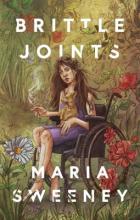
An evocative and heartfelt graphic memoir about the challenges of living with a progressive disability. When Maria Sweeney was young, she kept count of her broken bones. Living with Bruck syndrome, a rare progressive condition that gives her very brittle bones and joint abnormalities, meant that those numbers climbed and climbed. With lush illustrations, Maria tells the story of her lifelong struggle to obtain care in an increasingly complicated and disinterested US healthcare system. She documents the relief she’s found in alternative therapies, particularly medical marijuana; in loving community and chosen family; and in nature and her creative practice. A powerfully understated critique of our modern world, Brittle Joints offers a generous, expansive look at how to live and love amidst the challenges of survival.
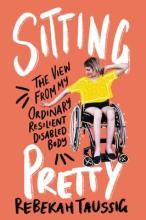
From disability advocate with a PhD, and creator of the Instagram account @ sitting pretty, an essay collection based on a lifetime of experiences in a paralyzed body, tackling themes of identity, accessibility, bodies, and representation. Sitting Pretty is a “memoir-in-essays” spanning personal stories and family histories. In using colloquial and sensory language, she brings disability studies from the gated spaces of academia to broader audiences, offering her story as one voice in the rich, expansive, and complex tapestry of human experience.
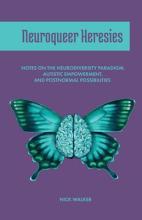
The work of queer autistic scholar Nick Walker has played a key role in the evolving discourse on human neurodiversity. Neuroqueer Heresies collects a decade's worth of Dr. Walker's most influential writings, along with new commentary by the author and new material on her radical conceptualization of Neuroqueer Theory. This book is essential reading for anyone seeking to understand the foundations, terminology, implications, and leading edges of the emerging neurodiversity paradigm.

The Autism-Friendly Cookbook was created by journalist Lydia Wilkins for autistic adults and teens to turn to when cooking for friends, lacking inspiration, or on those low-energy days. With recipes to suit any occasion, the book is written in clear, jargon-free language which makes 'the obvious' obvious. Recipes are categorised by meal with additional guidance on the level of energy needed to tackle them, with options for low-energy or meltdown days, or days when you're able to take on a new challenge. They contain adaptations and options to suit different dietary needs including vegetarian, vegan, gluten-free and dairy-free, and additional modifications for those who are sensory seekers, sensory avoiders or who want to expand their repertoire in the kitchen.
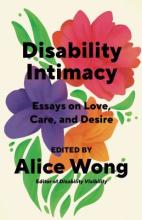
What is intimacy? More than sex, more than romantic love, the pieces in this stunning and illuminating new anthology offer broader and more inclusive definitions of what it can mean to be intimate with another person. Explorations of caregiving, community, access, and friendship offer us alternative ways of thinking about the connections we form with others. Plunge between these pages and you'll also find disabled sexual discovery, disabled love stories, and disabled joy. These twenty-five stunning original pieces include essays, photo essays, poetry, drama, and erotica: a full spectrum of the dreams, fantasies, and deeply personal realities of a wide range of beautiful bodies and minds.
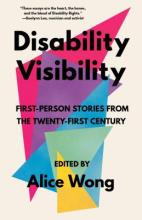
According to the last census, one in five people in the United States lives with a disability. Some are visible, some are hidden--but all are underrepresented in media and popular culture. Activist Alice Wong brings together an urgent, galvanizing collection of personal essays by contemporary disabled writers. There is Harriet McBryde Johnson's "Unspeakable Conversations," which describes her famous debate with Princeton philosopher Peter Singer over her own personhood. There is columnist s. e. smith's celebratory review of a work of theater by disabled performers. Taken together, this anthology gives a glimpse of the vast richness and complexity of the disabled experience, highlighting the passions, talents, and everyday lives of this community. It invites readers to question their own assumptions and understandings.
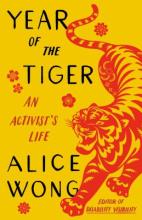
Drawing on a collection of original essays, previously published work, conversations, graphics, photos, commissioned art by disabled and Asian American artists, and more, Alice uses her unique talent to share an impressionistic scrapbook of her life as an Asian-American disabled activist, community organizer, media maker, and dreamer. From her love of food and pop culture to her unwavering commitment to dismantling systemic ableism, Alice shares her thoughts on creativity, access, power, care, the pandemic, mortality, and the future. As a self-described disabled oracle, Alice traces her origins, tells her story, and creates a space for disabled people to be in conversation with one another and the world.
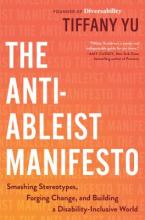
The Anti-Ableist Manifesto defines ableism as discrimination in favor of non-disabled people and helps readers understand that ending discrimination begins with self-reflection. Tiffany Yu celebrates the power of stories and lived experiences to foster the proximity, intimacy, and humanity of disability identities that have far too often been 'othered' and rendered invisible. Organized from the personal to the professional, the domestic to the political, the Me to the We to the Us, this book frames context for conversations, breaks down the language of ableism, identifies microaggressions, and proposes real actions that lead to genuine and authentic allyship.

1936 in the Crown Colony of Singapore, and the British abdication crisis and rising Japanese threat seem very far away. When the Irish nanny looking after Acting Governor Palin's daughter dies suddenly - and in mysterious circumstances - mission school-educated local girl Su Lin - an aspiring journalist trying to escape an arranged marriage - is invited to take her place. But then another murder at the residence occurs and it seems very likely that a killer is stalking the corridors of Government House. It now takes all Su Lin's traditional skills and intelligence to help British-born Chief Inspector Thomas LeFroy solve the murders - and escape with her own life.